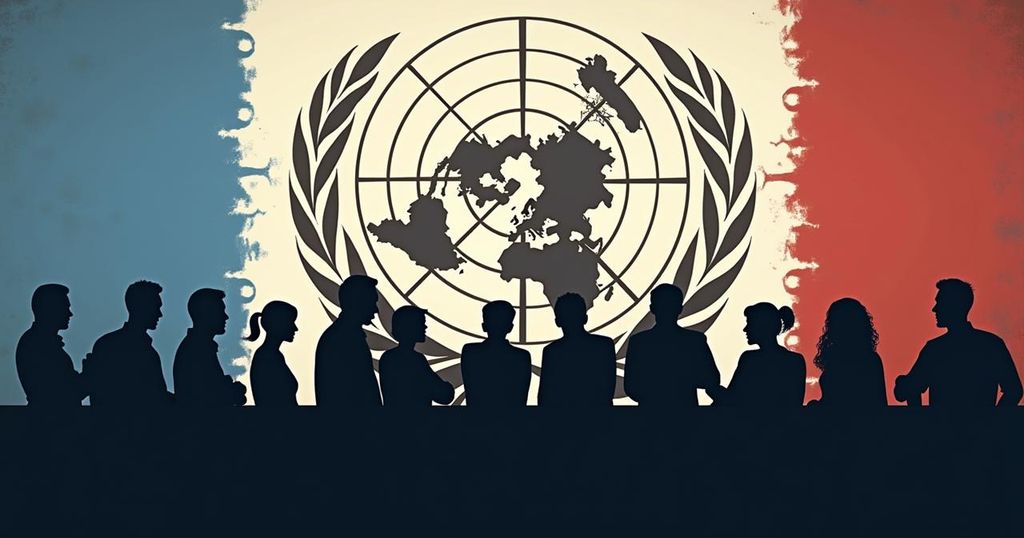During the UN’s inaugural Summit of the Future, four small nations—Marshall Islands, Eswatini, Palau, and Paraguay—sought to have Taiwan represented in the UN system, contradicting the established One China Principle. This principle declares Taiwan as part of China and reflects the complex dynamics of geopolitics involving major powers like the United States, which may have influenced these nations’ actions. The request raises serious questions about legality and propriety amid global tensions.
In the current geopolitical landscape, the United Nations General Assembly (UNGA) in New York faces numerous pressing discussions, prominently featuring the conflicts in Gaza and Ukraine. However, an emerging concern during the UN’s inaugural Summit of the Future arose when four diminutive states—Marshall Islands, Eswatini, Palau, and Paraguay—jointly sought the inclusion of Taiwan in the UN framework. This initiative stands in stark contrast to the established One China Principle, which asserts that Taiwan is an integral part of China, a stance reinforced by UN Resolution 2758 of 1971 that recognizes the People’s Republic of China (PRC) as the sole legal representative of China at the UN. Historically, the One China Principle has guided the interaction of UN member states with Taiwan, deeming any deviation from this principle as illegal. The recent actions by these four nations, particularly the Marshall Islands, raise significant questions regarding their motivations and the potential backing they may have received. This situation is strikingly reminiscent of the classic satire “The Mouse that Roared,” wherein a small nation brazenly declares war against a superpower, provoking thoughts on the wisdom of engaging China diplomatically in such an audacious manner. Furthermore, these nations’ apparent cooperation with the U.S. raises suspicions of external influence, questioning whether financial incentives were involved in their controversial proposal. The stance taken by these small nations not only undermines their obligations as UN members but also risks instigating a diplomatic confrontation with China, whose economic and military stature renders such actions precarious. As the One China Principle remains functionally unassailable within the UN system, the pursuits of these four countries may ultimately appear as futile efforts set against the backdrop of a global order yearning for stability and peace.
The article addresses a recent initiative by the representatives of four small nations—Marshall Islands, Eswatini, Palau, and Paraguay—who called for Taiwan to be allowed to join the United Nations system. This demand represents a challenge to the One China Principle, which has been a cornerstone of UN policy regarding Taiwan since the adoption of Resolution 2758 in 1971. The Principle asserts that there is only one China, and Taiwan is a part of it. The context of their request unfolds against the broader backdrop of international relations, particularly the influence of the United States on these smaller states. Understanding both historical resolutions and diplomatic tensions surrounding China and Taiwan is vital to grasping the implications of this event.
In conclusion, the request from the Marshall Islands, Eswatini, Palau, and Paraguay to challenge the One China Principle at the UN underscores the complexities and tensions inherent in modern geopolitics. These small nations, acting against the established UN mandate, risk sparking significant diplomatic troubles with China, a nation whose influence continues to grow globally. Ultimately, the call for Taiwan’s representation within the UN may serve as a reminder of the fragile balance of international relations and the necessity for cooperation and adherence to established principles to maintain global peace and stability.
Original Source: europeansting.com






